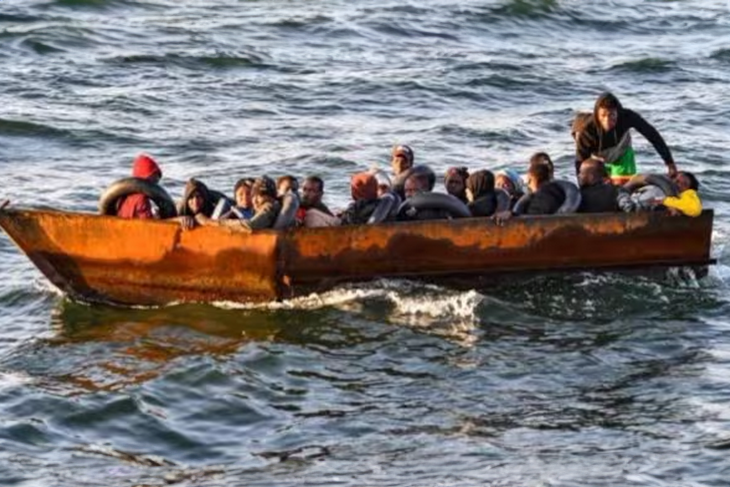Part III: Decolonising the Global Refugee Convention
Despite more than 70 years of the existence of the Global Refugee Convention, the number of people seeking refuge have increased. Last year we saw the largest yearly increase recorded in the number of refugees – from 27.1 million in 2021 to 35.3 million at the end of 2022. Indications are that the year 2023 is going to see further increase. With the crisis increasing, sentiments are not growing in favour, rather as indicated above, there is a growing lack of empathy and increasing hostility to refugees and people seeking refuge across borders.
In a few weeks the Global Refugee Forum will be meeting to discuss and address the global refugee crisis. This is an annual event that brings together governments, civil society, refugees, and other stakeholders to share best practices, make pledges of support, and mobilize resources to help refugees and their host communities. Clearly there is a lot that needs to be on the table.
At the heart of discussions about the refugee protection system are two significant philosophical inquiries: firstly, determining the definition of a refugee, and secondly, understanding the ethical guidelines for how states should support individuals seeking asylum. In its present state, the Refugee Convention does not resolve these questions and leaves them as subjects of disagreement and dispute.
There is urgent need to expand the Convention’s definition to include refugees fleeing persecution due to economic, environmental, climate change factors or sexual orientation. Based on such a definition there is need for concrete guidance on how states should support refugees and affirm refugees’ inherent right to immigrate and establish a new life where they want to. It is only by expanding the reach of refugee protection and refugee participation in substantive discussions and decision making, that we can strive for an approach that is more comprehensive, fair, and empathetic in safeguarding the human rights of all individuals escaping persecution.
The Convention must strive to ensuring that refugees have the right to reunite with their families and access resettlement opportunities, regardless of their nationality or the country of origin. Recognising that 50 per cent of refugees, internally displaced or stateless populations are women and children, the Refugee Convention has to call for feminist approaches to refugee protection and rehabilitation.
The Convention cannot continue to turn a blind eye to the root causes of displacement and forced displacement. It needs to promote international cooperation and development initiatives to address the underlying causes of forced displacement, such as conflict, poverty, and human rights violations.
No doubt countries of the Global South need to protect the strengthen “humanitarian hospitality” approaches they have followed through the decades, despite tough challenges. Despite huge challenges, in the past decade alone several countries have provided home to refugees. Bangladesh, Ethiopia, Pakistan and Columbia have provided refugee to millions of refugees in the past decade. Columbia went a step further to grant a ten year protection status to 2 million Venezuelan refugees and migrants enabling them to plan and integrate for their future.
The Convention needs to promote responsibility-sharing among states, encouraging a more equitable distribution of refugee responsibility among states, moving away from the current system that disproportionately burdens countries of the Global South with refugee populations.
This can be conceived by imbibing the principle of ‘common but differentiated responsibility’ as it has been implemented in the case of the climate crisis. This sharing of responsibilities must be bolstered by keeping the significant sociological shifts and emerging challenges confronting the world today, such as climate change impacts, and sexual diversities.
To tilt the scales in favour of both refugees as well host countries in the Global South, a serious consideration should be given to the process of resettlement. To prevent refugees from being stranded due to a shift towards resettlement, there should be a mutually agreed time limit for refugees to await resettlement in a third country. The rationale behind this is to allow states a specific duration to coordinate the safe and consensual transfers of refugees and asylum seekers. However, this time frame should ensure that refugees are not left in a prolonged state of vulnerability and uncertainty. Simultaneously, nations should strategically use resettlement to improve public attitudes towards refugees before initiating legal reform on an international level.
Decolonizing the Refugee Convention is an ongoing process that requires a concerted effort from the international community, refugee-receiving states, and civil society organizations to ensure that the global refugee protection framework is responsive to the needs and realities of refugees in today’s interconnected world. The path ahead lies in empowering refugees and host communities by recognizing the agency and resilience of refugees, fostering their participation in decision-making processes, and supporting host communities in welcoming and integrating refugees.
Eventually we may indeed have a world that welcomes refugees, so we can then work for a world that does not create them.
Disclaimer: The article was originally published on Firstpost. The views expressed in the article are the author’s and do not necessarily reflect those of ActionAid Association.
 Author: Iyce Malhotra | Sandeep Chachra
Author: Iyce Malhotra | Sandeep Chachra

